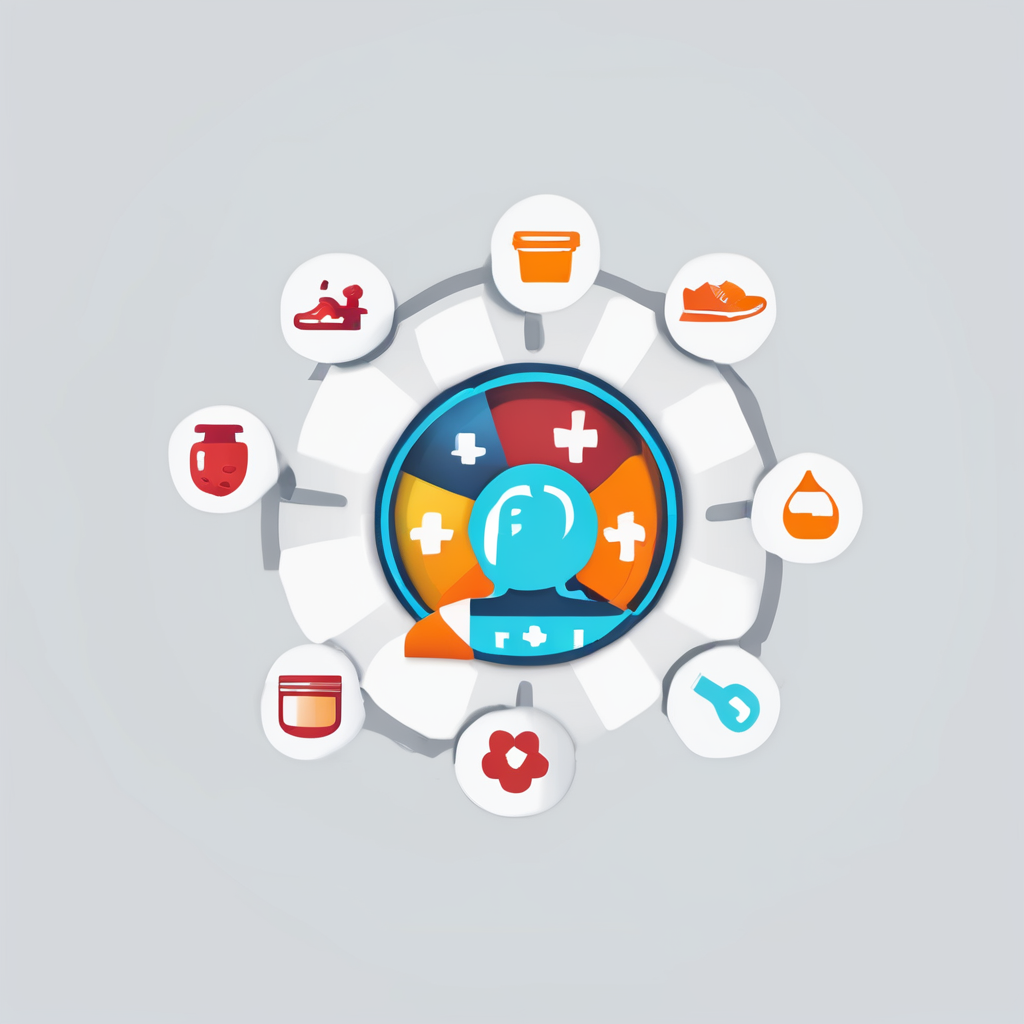In a world where medical advancements continue to shape the way we approach healthcare, understanding the significance of regular health screenings becomes paramount, especially as we age. Seniors, a demographic often prioritized in health initiatives, are encouraged to incorporate routine check-ups into their lifestyle. This not only helps in maintaining good health but also in early detection of potential diseases. As we navigate through life’s golden years, knowledge about regular check-ups unfolds as a powerful tool to enhance longevity and quality of life. Let’s delve into what you, as seniors, should know and why regular health screenings are indispensable.
The Role of Health Screenings in Senior Wellness
As we journey into our senior years, it becomes crucial to prioritize our well-being by actively engaging in health screenings. These are not just routine check-ups; they serve as a beacon for detecting and managing potential health risks before they escalate into life-threatening conditions. Health screenings are tailored to identify diseases early, allowing for more effective and less invasive treatments.
Also to read : What are the benefits of gardening for the physical and mental health of seniors?
When it comes to senior healthcare, the focus often shifts to preventive measures. Regular screenings help in uncovering hidden health issues that may have otherwise gone unnoticed. Whether it’s monitoring blood pressure, checking for diabetes, or screening for cancers, these tests are essential components of senior health management.
Moreover, screenings are not merely about discovering diseases; they also provide valuable insights into your overall health. They help healthcare professionals tailor recommendations and lifestyle adjustments that align with your unique health needs. The benefits are twofold: you gain a comprehensive understanding of your health status, and your healthcare provider can implement a personalized care plan to help you maintain optimal health.
Also read : How can older adults create a balanced meal plan tailored to their needs?
Routine healthcare check-ups create a proactive approach rather than a reactive one. By staying informed through regular screenings, you take charge of your health journey, ensuring that you are well-equipped to manage any arising health challenges.
Common Health Screenings for Seniors
Navigating the healthcare landscape as a senior can feel overwhelming, but understanding common screenings can provide clarity and empowerment. From assessing risks to identifying diseases early, these screenings are the cornerstone of preventive care.
-
Blood Pressure Evaluation: High blood pressure, often dubbed the “silent killer,” poses significant risks as it can lead to heart disease and stroke without noticeable symptoms. Regular checks help in maintaining heart health and mitigating related risks.
-
Blood Sugar Tests: Monitoring blood sugar levels is crucial, particularly as the risk of diabetes increases with age. Early detection and management can prevent complications and enhance quality of life.
-
Cancer Screenings: Certain cancers, such as breast, colorectal, and prostate cancer, show a higher prevalence in older adults. Screening methods like mammograms, colonoscopies, and prostate exams are vital for early detection and successful treatment.
-
Cholesterol Checks: Understanding cholesterol levels can prevent heart disease. By identifying any abnormalities, healthcare providers can suggest dietary or medicinal interventions to keep your heart healthy.
-
Bone Density Tests: Osteoporosis is a common concern among seniors, leading to fractures and reduced mobility. Bone density tests help assess risk and guide interventions to maintain bone health.
By engaging in these screenings, you actively participate in managing your health, aligning with the goal of enhancing longevity and reducing disease burden.
The Impact of Early Detection on Disease Management
Understanding the impact of early disease detection cannot be overstated. It shifts the paradigm from treating diseases to preventing them, a strategy that is particularly effective for older adults. When diseases are caught early, treatment options are often more successful, less invasive, and less costly.
Consider the example of cancer. Detecting cancer in its initial stages vastly improves the chances of a successful outcome. Early-stage cancer treatment may be limited to surgery or localized therapy, minimizing the need for aggressive treatments like chemotherapy or radiation, which can be taxing on senior health.
Similarly, early identification of chronic conditions like hypertension or diabetes allows for timely lifestyle changes and interventions, significantly reducing the risk of complications. It enables older adults to maintain their independence and enjoy a higher quality of life.
Moreover, early detection fosters a sense of empowerment. Knowing your health status and potential risk factors allows you to make informed decisions about lifestyle modifications, dietary changes, and exercise regimens that enhance your overall well-being.
The peace of mind that comes with being proactive about your health is invaluable. Regular screenings provide a foundation for comprehensive disease management, ensuring that you remain in control of your health narrative.
Overcoming Barriers to Regular Health Screenings
While the benefits of regular health screenings are clear, challenges can sometimes deter seniors from participating in these essential check-ups. Recognizing and overcoming these barriers is crucial to ensuring consistent health monitoring and care.
-
Accessibility: For some seniors, reaching healthcare facilities can be a challenge due to mobility issues or transportation constraints. Solutions like telehealth appointments and mobile screening units can make healthcare more accessible.
-
Cost Concerns: Financial worries often act as a deterrent for seniors on fixed incomes. Many regional health programs offer free or subsidized screenings. Understanding what is covered by your healthcare plan can also alleviate these concerns.
-
Fear and Anxiety: Fear of potential diagnoses can discourage regular check-ups. However, understanding that early detection leads to better outcomes can help alleviate these fears and encourage proactive health management.
-
Lack of Awareness: Some seniors may not be aware of the importance of certain screenings. Educational initiatives and community outreach programs play a significant role in increasing awareness and encouraging participation.
By identifying and addressing these barriers, seniors can more easily integrate regular health screenings into their routine, paving the way for healthier aging and improved quality of life.
As we reflect on the insights shared about the importance of regular health screenings for seniors, the message is clear: proactive health management is key to enjoying a fulfilling and healthy life in our later years. Health screenings empower you to make informed decisions about your well-being, helping to identify potential issues before they become significant problems.
Healthcare is not just about treatment; it’s about prevention, understanding, and action. As seniors, embracing regular screenings means taking control of your health journey, ensuring that you remain active participants in your life story.
Your health remains your greatest asset. By committing to routine health screenings, you invest in your future, embracing the potential of longevity and vitality. Remember, the path to a healthier tomorrow is paved with informed decisions today. Together, let’s champion a proactive approach to senior health, one screening at a time.











